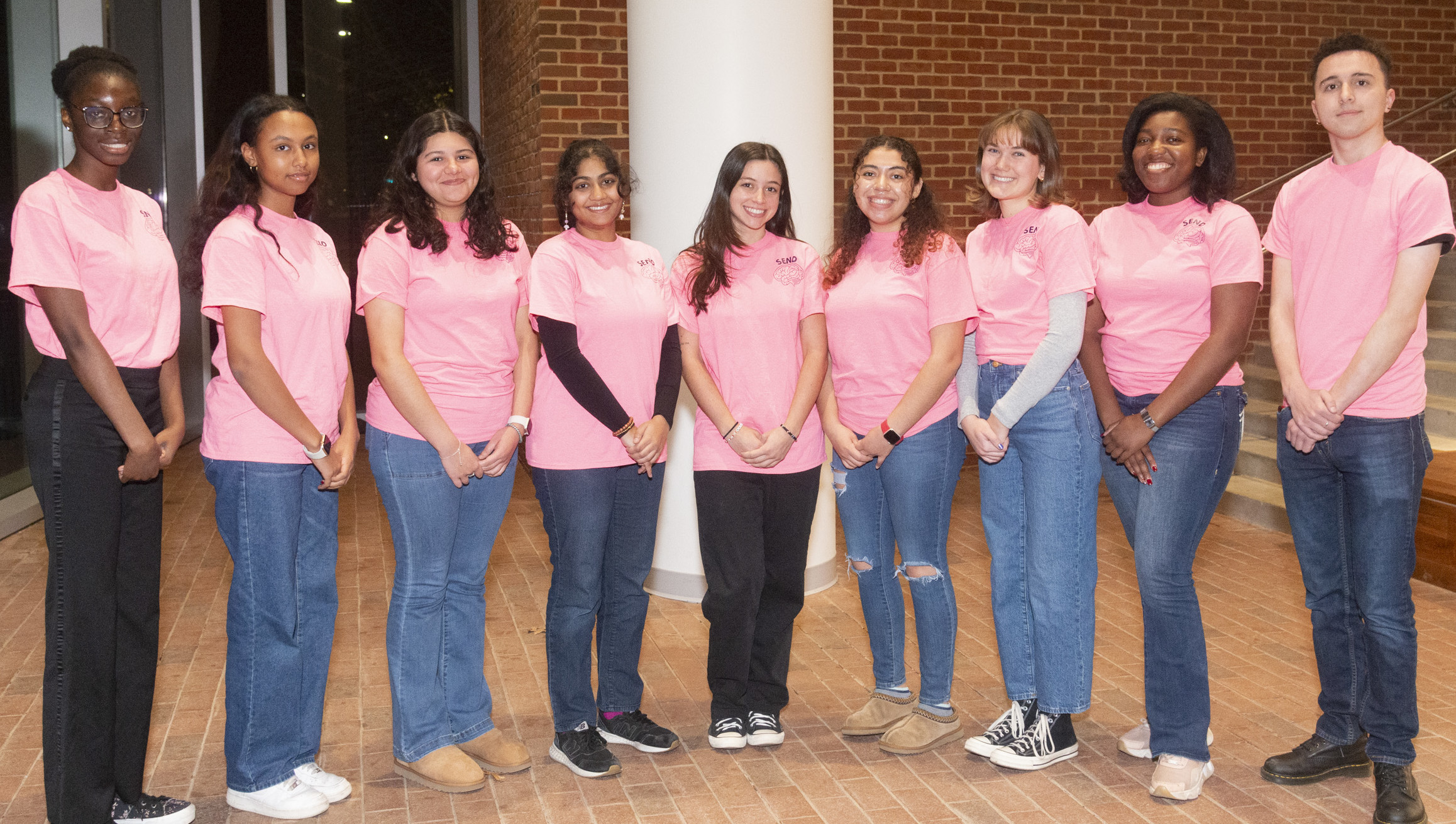Socioeconomic Effect on Neurodevelopment Disorders
Our Mission
Autism spectrum disorder (ASD) is a neurodevelopmental disability that is usually diagnosed during early childhood, between the ages of 4 and 5. According to the CDC around 3% of children in the US have ASD, but this statistic is only includes those that have received an official diagnosis. Interventions and other support resources are often only available to families and children that already have received a diagnosis.
Research Question
Does socioeconomic status play a role in receiving a delayed diagnosis for ASD?
Study Design
We plan to use a mixed-method design by conducting both interviews and surveys. In order to participate the child must have received an ASD diagnosis and must currently be 18 or younger. A mixed-method approach allows our team to analyze both qualitative data from interviews and quantitative data from the surveys. Interviews provide us with an in-depth understanding of the diagnostic process for families of children with ASD. Conducting surveys will allow us to widen our scope, target a larger sample, and collect tangible quantitative and qualitative data.
Hypothesis
- Survey: We hypothesize that economic factors such as education level, wealth, and social status will play a significant role in the timing of an ASD diagnosis.
- Interview: We hypothesize that healthcare costs, geographic/transportation access to providers, and information about ASD will be facilitators and barriers to receiving a timely diagnosis of ASD.
Recruitment and Sampling
To recruit participants for surveys and interviews, we plan to conduct outreach with community support groups in Maryland. We hope to develop an understanding of the community, build a foundation of trust, and make connections with our potential participants. We will provide community centers in Maryland with flyers containing information about involvement in our research. The goal is to receive 300 survey responses. The interview sample will be randomly drawn from the survey sample, with a total of 30 interviews.
Data Collection
Survey question have been adapted from a study conducted in the UK with parent’s experiences with the ASD diagnosis process. Interviews are semi-structured, meaning we have a list of questions, but want the interview to flow like a conversation and to foster a safe space for parents to share their experiences.
Equity in Our Research Process
Conducting interviews allows families and caregivers to voice their needs and experiences openly. Team SEND will use inclusive language to make participants feel as comfortable and included as possible. We will focus on our stakeholders and their comfort level throughout this process as we will touch on potentially sensitive topics for some individuals. Finally, we will compensate participants for their time and participation in our research.
Budget Breakdown
Conferences: At conferences, we will share our research findings and observe other studies in the field. Ideally, the conferences we attend will be in the DMV to reduce costs associated with flying and hotel stays. Costs for conferences may include:
- Meals for each day team members are in attendance
- Conference attendance fees (varies by conference)
- Transportation (flights or gas costs for driving)
- Hotel costs for each night team members are in attendance
Organization Meetings and Outreach: Through these meetings, we can connect with community organizations, offer our time, and encourage participation in our research. Costs include:
- $15 for paper and printing flyers
- $100 for food at meetings
Compensation for Participation: We will compensate participants equivalent to an hour of their work/time to show our appreciation. Costs include:
- $20 per hour of each interviewee’s time
- $10 gift card for a raffle for participation in and completion of our survey
Current Status
We have established a presence on social media including Instagram, X, and Facebook. On Instagram we make monthly posts about various topics such as the Robert Roberson court case and debunking myths about ASD. Our research for these posts help us to prepare for recruitment and gain a greater understanding of the ASD community.
We are IRB approved as of October 4th of this year.
Our survey and interview questions have been finalized and we are focusing on preparing for analysis and quantification of survey data and leading interviews.
Follow us on Instagram @teamsend2026 or on Facebook at Send Gems
Email: send2026@umd.edu
Gifts in support of the University of Maryland are accepted and managed by the University of Maryland College Park Foundation, Inc., an affiliated 501(c)(3) organization authorized by the Board of Regents. Contributions to the University of Maryland are tax deductible as allowed by law. Please see your tax advisor for details.
$15
Recruitment
This level will help secure paper and print flyers in order to recruit parents and caregivers to participate in interviews and surveys.
$25
Compensation
This level will fund compensation for parents and caregivers that voluntarily participated in our research and give our participants recognition of time spent with us.
$50
Meals at Conferences
Conferences are important event for us to attend and it’s hard to attend an event hungry! This level will allow us to buy meals while at conferences.
$150
Meals at Community Meetings
This level will assist in catering any meetings we have with community organizations to show our appreciation for allowing us to work with them.
$250
Conference Fees
Conferences will allow us to share our research findings with the field, capture the interest of others, and learn from other studies we observe while there. This level will help us attend conferences.

